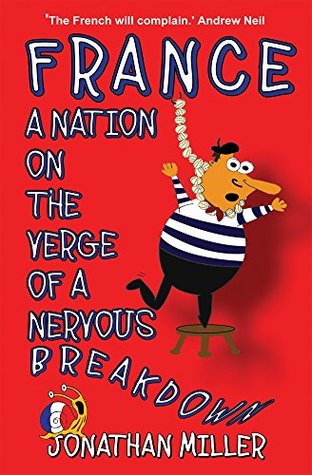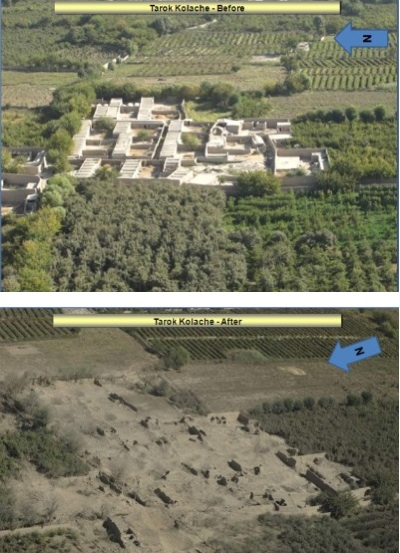While I was not blogging
I wrote this.

Here is what some people have said about it on Amazon:
Simply the best book about the malaise that is modern France.
I read it while staying in Provence and it told me, for the first time, why the queues are so long in French supermarkets (they can’t afford to hire more workers thanks to French labour law).
Funny, waspish, lucid, clever, and definitely enlightening. Voltaire would approve.
Having read many books and textbooks on French culture, this one is unique and extremely valuable to anyone who is remotely interested in the language and the culture of the country.
Enjoyable insight into modern French society is highly recommended for anyone seeking private or professional bonds with the French.
This book is indispensable for Francophiles, students of Modern Languages, Political Economy, expats, students of EU and its politics, European socialism, and so on.
This is the perfect book for November in the UK.
A good book with some witty insights into aspects of a large and complex country.
You might buy this book because you want a good laugh at the French, and it certainly works on that level.
But, truth be told, this is really an essential guide to French life and the most honest one I have ever come across.
So much of the inexplicable is explained here. Now I understand why the shops are mysteriously closed on any given day and why nobody seems keen to run an efficient business. I had wondered why the food was so surprisingly bad, now I know. This also clears up the mystery of just who are all those drunken guys with guns menacingly staring at me from beside the road. Read the book and find out.
Aside from the expats, this book is largely wasted on an English-speaking market. Home truths like these deserve a French edition.
Hello
Lots of old work mainly on this blog. The cloud shows you what I was writing about. Please have a look around. At the moment I am blogging more on anglois.wordpress.com where the concentration is on French speakers learning English.
BSkyB is an abusive monopoly, no matter who owns it
I have nothing to add to the shock revelation that journalists are corrupt.
I merely comment that whether Rupert Murdoch should be permitted to take 100% control of BSkyB is the wrong question.
BSkyB is ALREADY an abusive monopoly that:
– imposes itself on captive ratepayers – for mostly uncabled Britain, BSkyB is the only game in town with a 50% market share of pay-TV. It uses its stuctural monopoly to impose rates and services and conditions on subscribers who have nowhere else to go for things like football and films.
– by its structure and practice, inhibits competitors from entering the marketplace through its control of subscriber management and the only 2 electronic programme guides (EPG) (standard and HD) available in the satellite marketplace. There are no competitors in either subscriber management or electronic programme guides on the satellite system controlled by BSkyB.
– exercises an unhealthy effect on media plurality through its abuse of the EPG giving itself favoured channel positions and imposing rates, services and conditions on anyone else who wants to gain access to this platform. The victims of BSkyB’s monopoly practices are not only viewers but competitive programmers. BSkyB might claim that access is equitable between its own channels and others, but its charges to itself for its own channels produce revenue for BSkyB while imposing a rent on everyone else.
In a country where abusive monopolies have never been taken very seriously, BSkyB is not just an abusive monopoly but a direct threat to media pluraity, which the lefties say is what they care about. Clueless Murdoch-haters may rave but if the idea is to have media plurality then BSkyB is the biggest problem in town…. worse, even, than the hideous subsidy-junky BBC with its endless, costly, patronising drivel .
The objective of public policy should be to give consumers the benefit of competition right across the board with open entry and diverse choices. Instead, the satellite platform, the most influential platform of all in the UK, is already 100% controlled by a single entity.
Investigate that.
Welcome to England
I arrive at the slum of Gatwick South on Friday afternoon and there is a crush at the grandly titled UK Border.
A large squat woman in rent-a-cop uniform has been put in charge of segregating people without EU passports.
As hundreds of arriving passengers wait for inspection, she is waving her finger in the face of a baffled family, announcing in parade-ground tone of voice, “I have told you five times to stand over there.”
Who is this woman? Is she employed by the airport? The border control agency? She does not wear the same uniform of the baggage screeners, who are more polite, generally. I shudder that this embarrassing scene will now forever linger in the memory of this respectable-looking family as their abiding recollection of arriving in Britain. She is lucky she did not speak like that to me.
If I was in charge at the UK border there would be someone who said: “Welcome to the United Kingdom.” And a polite sign that said: “To help you through our border formalities most efficiently, please help us by having the following documents ready, blah blah. Please do not use your mobile phones or take photographs in this area.” I might even arrange a cup of tea and a biscuit. When I finally arrive at the border itself, I mention to the officer who scans my passport, that this woman (who is now abusing another family) is not a very good advertisement for our country. He replies with a wan smile and the words, “I think she is tired.”
‘The Citroën Traction Avant saved our lives’
The car had “certainly not” broken down. Picture shows Citroën Traction in October 1939 on the 7km mud road leading to the ‘vast estate’ at Suceava, Romania. The account of this episode in the Cranleigh RC parish magazine explains that it was the custom of the landowner to send his ox teams to pull cars through the deep mud – as ‘a gesture of friendship & welcome.’
Basia Weaver (née Rytarowska), who lives quietly today in Cranleigh, Surrey, a member of St Nicholas Catholic church and an amateur historian, has no trouble finding material. She has a story of her own – of an exile that involves escaping both Nazis and subsequently Soviets, each having invaded her native Poland within a few days of one another, in 1939.
Her account of her escape from Poland to Bucharest and subsequently Cranleigh via Yugoslavia, Italy, France, Algeria, Morocco and Portugal, contains the intriguing revelation (to a Tractionist) of the vital role played by her father’s new Citroën Traction Avant, which was the family’s vehicle for escape. Basia found a new home in England after making a perilous flight across the Bay of Biscay, an area where German air presence was assumed. She is now occupied translating family archives and trying to recover the story , so as to enlighten her grandchildren, when they ask why, and how, and what happened.
I met the remarkable Basia by pure coincidence, or Tractiondipidity, outside the Sun public house in Dunsfold, in the company of Modestine, my 1951 Citroën Traction Avant.
The power of the Traction to attract admirers and good stories has rarely been bettered. Basia spotted the car, one thing led to another, and over a soft drink she told me of her father’s beloved Traction, which outran incoming armies from two directions. I am of course fascinated, additionally when she said she had flown from Lisbon to Bristol, during World War II. This is an air link that carries a certain distinction, in my Junior Jet Club plane spotters book. My former neighbour Rex Cowan in Hampstead many years ago also used this flight. There is a lot about BOAC Flight 777 on Wikipedia and elsewhere.
In this epic tale of exile, the Traction “saved our lives,” recalls Basia. “It withstood appalling road conditions and survived the first six months of the war impeccably. A broken exhaust, resulting from the roughly cobbled roads on the outskirts of Bucharest, was the only mishap it suffered.”
“To avoid the blocked roads caused by numerous breakdowns and the lack of petrol, my father sometimes drove over ploughed stubble fields or through the woods,” she recalls in her account published in the March 2011 edition of the St Nicholas, Cranleigh, parish magazine.
After the escape from the Germans, the family was only briefly safe. “We were staying within 5 km of the Polish/Russian border when the Russian army invaded south-eastern Poland on 17 September 1939.” They drove to Romania, where in February 1940 the beloved car had to be sold.In a letter, Basia remembers Bucharest where there were a large group of Polish families as Romania had become the major escape route for Polish civilians and some in the military when Poland was attacked from the west and the east. She also remembers 2-1/2 years in Algiers.
“I remember some of the women we knew in Algiers were later with us in London so I presume that others made the same journey we did from Algiers/ Tangiers / Gibralter / Lisbon to Bristol.”
The BOAC flights between Lisbon and Bristol operated by brave KLM crews provide a colourful and tragic sidebar to the greater problems of civil aviation at the time. It is currently unclear to me if the commercial service was used by Basia and her mother when they landed in Bristol on 8 September 1942, or might they have been on another kind of flight. As Basia herself acknowledges: “The story of the Lisbon-Bristol flights is fascinating and needs unraveling.”
Basia’s father joined the Polish army in exile and after service in France was evacuated to Britain in June 1940. Basia’s sister married a French national in Algiers. Basia’s parents, born in the Ukraine, then part of Czarist Russia, had survived the Russian Revolution of 1917, the Russian civil war and the Polish-Russian war of 1920, and then the second world war. “Having lost everything twice in their lives, in 1948 they decided to stay in the UK and so start again. They died in England aged 85 and 93.”
What an amazing story!
Comments are welcome especially from those who can ‘interpret’ more about the Traction !








leave a comment